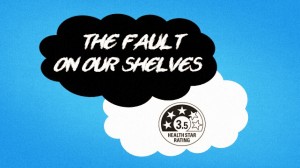Home » Commentary » Opinion » The fault in our stars, and on our shelves
· Ideas@TheCentre
 You might have noticed a funny-looking new label on some items at the supermarket. No, not that squiggly iPhone barcode nobody uses. It’s the Health Star Rating label, which the Abbott government was unable to prevent the Department of Health bureaucrats from developing, although they did manage to make the labels voluntary rather than compulsory.
You might have noticed a funny-looking new label on some items at the supermarket. No, not that squiggly iPhone barcode nobody uses. It’s the Health Star Rating label, which the Abbott government was unable to prevent the Department of Health bureaucrats from developing, although they did manage to make the labels voluntary rather than compulsory.
The Health Star Rating system gave quite a hostage to fortune by making its slogan so blunt: ‘The more stars, the healthier the choice. Simple.’ Unlike most advertising slogans, this one is a factual statement, the truth of which can be verified — or not.
ABC Fact Check has now done just that, and it turns out the Health Department marketing team would have been better off picking a vaguer slogan.
Fact Check highlights odd discrepancies, like liquorice confectionary scoring higher than plain yoghurt. Some brands of potato chips score higher than Pink Lady apples, some frozen pizza scores higher than Nutri Grain cereal.
Nutritionists blamed these anomalies on two main flaws. The first is the byzantine way the ratings are calculated. ‘Fruit content’ can earn points toward a higher rating, even when the ‘fruit content’ in question is so refined and stripped of fibre and vitamins that it’s not much healthier than straight syrup. Some fruit juices with high sugar content have been rejigged to achieve 4-star ratings in just this way.
The second flaw is more broadly conceptual. There just isn’t a simple way to rank the healthiness of radically unlike foods. Is hummus healthier than a hard-boiled egg? That’s like asking whether ice cream is more delicious than pizza – it’s not a fair comparison. The question is practically meaningless unless the foods can be put in the context of the rest of an individual’s diet. It’s certainly too complex to be boiled down to relative star ratings.
The range of food available in an average supermarket is just too diverse to be ranked along a single axis of ‘healthiness.’ That’s why there is little hope that revising the algorithm will ever produce a Health Star Rating system that can honestly claim ‘the more stars, the healthier.’
The fault in our stars, and on our shelves